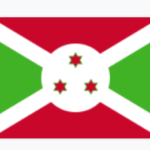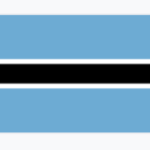Burkina Faso is a fascinating country in West Africa that deserves more attention from the world. It has a rich history, a diverse culture, and a resilient people who have overcome many challenges. In this blog post, I will share some facts and insights about Burkina Faso that you may not know.
History and Politics
Burkina Faso was formerly known as Upper Volta, a name given by the French colonizers who ruled the country from 1896 to 1960. The name referred to the upper part of the Volta River basin that the country occupies. After gaining independence in 1960, the country experienced several coups and political turmoil until 1983, when a charismatic leader named Thomas Sankara came to power. Sankara was a revolutionary who implemented radical reforms such as land redistribution, women’s rights, environmental protection, and anti-imperialism. He also changed the name of the country to Burkina Faso, which means “Land of Incorruptible People” in the local languages of Mossi and Dyula.
Sankara was assassinated in 1987 by his former ally Blaise Compaoré, who ruled the country for 27 years until he was ousted by a popular uprising in 2014. The uprising was sparked by Compaoré’s attempt to amend the constitution to extend his term limit. A transitional government was formed to organize democratic elections, which were held in 2015 and won by Roch Marc Christian Kaboré. Kaboré was re-elected in 2020, but his second term has been marred by security challenges and social unrest. Since 2016, Burkina Faso has been facing a growing threat from Islamist militants who have carried out attacks on civilians, security forces, and foreign targets. The violence has displaced more than one million people and caused a humanitarian crisis. The government has also faced protests from various sectors of society, such as teachers, health workers, students, and farmers, who demand better living conditions and public services.
Culture and Society
Burkina Faso is home to more than 60 ethnic groups, each with its own language, customs, and traditions. The largest ethnic group is the Mossi, who make up about half of the population and dominate the central and northern regions. The Mossi are known for their ancient kingdoms that resisted colonial invasion and their elaborate masks that are used in ceremonies and festivals. Other major ethnic groups include the Fula, Gurma, Bobo, Gurunsi, Senufo, Lobi, and Tuareg. Burkina Faso is also a multilingual country, with French as the official language and several national languages such as Mossi, Bissa, Dyula, Fula, and others. Most Burkinabè are bilingual or trilingual, and some can speak up to six languages.
Burkina Faso is a predominantly Muslim country, with about 64% of the population adhering to Islam. However, Islam in Burkina Faso is often mixed with traditional beliefs and practices that vary from region to region. For example, some Muslims may also worship ancestral spirits or nature deities. About 26% of the population are Christians, mostly Catholics and Protestants. The remaining 10% follow traditional African religions or have no religion. Burkina Faso is generally tolerant of religious diversity and coexistence.
Burkina Faso is also known for its vibrant arts and culture scene, especially in the fields of music, film, literature, and crafts. The country hosts several international festivals that showcase its artistic talent and attract visitors from around the world. Some of these festivals include FESPACO (the Pan-African Film Festival), SIAO (the International Art and Craft Fair), Jazz à Ouaga (the Ouagadougou Jazz Festival), and FESTIMA (the International Festival of Masks). Some of the most famous Burkinabè artists include musicians such as Victor Démé, Bil Aka Kora, Smockey, and Amadou Balaké; filmmakers such as Gaston Kaboré, Idrissa Ouedraogo, Dani Kouyaté, and Apolline Traoré; writers such as Nazi Boni, Monique Ilboudo.








